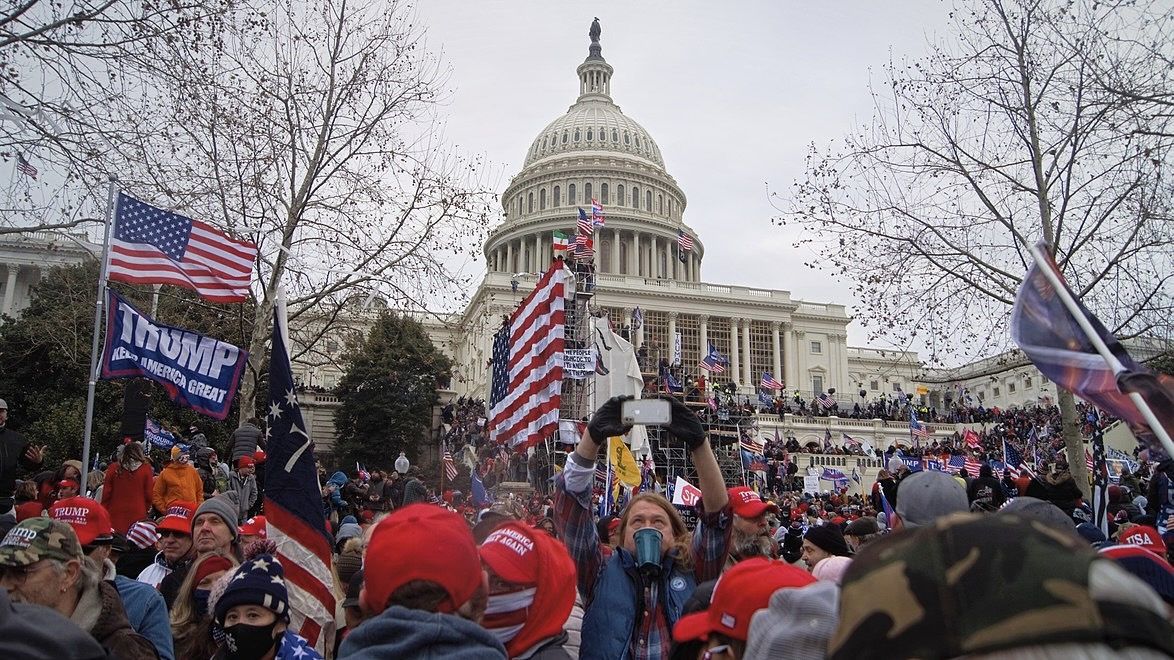Three years ago, a right-wing mob stormed the United States capitol building as the 2020 presidential election results were being certified. The attempt was of course unsuccessful, and Joe Biden was inaugurated as President on January 20, 2021.
Three years later and after 1,240 arrests, 170 convictions, 210 guilty pleas to felony offenses, 720 sentences, the longest being 22 years for Enrique Tarrio, the leader of the far-right organization the Proud Boys, it seems as if there has been some retribution for a brazen attempt to install a candidate by violent means that the majority of people in the US did not want to see in the presidency.
The fact is, however, that January 6 was not a populist uprising, although many of the participants were indeed working class people swept up in the fervor of the moment. At multiple levels, January 6 was an operation financed and led by establishment political figures and ultra-wealthy donors.
Trump laid the groundwork
Since the November 2020 Presidential election, Trump had been fomenting the idea that the election was somehow rigged and “stolen” from him, and that he was the true victor. It was around Trump’s “Stop the Steal” rallying cry that the mob formed on January 6 and stormed the US Capitol, where the results were being certified. And following the rally, which took place at the Ellipse park near the White House. Trump himself explicitly directed the crowd to the US Capitol, where police had set up barricades in anticipation of a disruption of election certification proceedings.
“We’re going to walk down to the Capitol. And we’re gonna cheer on our brave senators and congressmen and women. And we’re probably not going to be cheering so much for some of them, because you’ll never take back our country with weakness, you have to show strength and you have to be strong,” Trump said at the Ellipse.
The financiers of January 6
Beyond political direction, rich and powerful figures provided explicit financial support to the events of January 6. Members of the former President’s inner circle bragged about fundraising millions for the rally. Publix heiress Julie Fancelli, who has donated millions to right-wing political causes including Trump’s 2020 campaign, offered as much as USD 3 million to finance the January 6 rally that preceded the insurrection. Prominent mainstream right-wing organizations such as Turning Point USA and the Republican Attorneys General Association (RAGA) also backed the rally, providing buses, making mass calls, and funneling money to speakers. “This historic event will likely be one of the largest and most consequential in American history,” wrote Turning Point leader Charlie Kirk about the rally, in a tweet. “The team at @TrumpStudents & Turning Point Action are honored to help make this happen, sending 80+ buses full of patriots to DC to fight for this president.” This tweet has since been deleted.
These groups are not considered fringe. TPUSA donors include the foundation of notable right-wing donor Bernie Marcus, the founder of Home Depot, and the Koch Brothers. The Republican Attorneys General Association boasts a variety of corporate donors, including Amazon, Walmart, Visa, Capital One, MasterCard, Walgreens, General Motors, Home Depot and JPMorgan Chase’s Political Action Committee (PAC), which all have resumed donations to RAGA despite the organization’s embrace of the conspiracy that the 2020 election was stolen.
Those who faced material consequences for storming the Capitol, however, did not represent this wealthy donor class. Out of those arrested, 60% had experienced financial problems over the previous 20 years. 18% had experienced bankruptcy in the past (double the rate of the general public), 20% had eviction or foreclosure proceedings, and 25% had been sued by a creditor for not paying money owed.
And while the mob of people who were arrested for participating in the events of January 6 were not necessarily from the most oppressed sectors of the United States—40% were business owners or white collar workers, and 90% were white—these people are a far cry from the level of wealth and power of the backers of the “Stop the Steal” rally.
However, there were several major right-wing groups, some who practice or promote political violence, who were key players on the ground. The leaders of the Oath Keepers militia and the Proud Boys received the heaviest charges. Armed militia groups including the Oath Keepers and the Three Percenters brought weaponry. Openly neo-Nazi organizations such as the Nationalist Social Club-131 also participated. Due to the heavy presence of right-wing groups and sympathizers, January 6, 2021 was the first time a Confederate battle flag was displayed inside the US Capitol.
Trump is facing limited consequences for his role in the January 6 riots, due to lawsuits in Maine and Colorado, it is possible that Trump’s name will no longer be on the Republican primary ballot due to his attempts to reverse the results of the 2020 election. The Supreme Court has agreed to review Colorado’s decision in February. Colorado used a part of the 14th Amendment to the Constitution, designed to keep former Confederate rebels out of Congress, to keep Trump off the ballot. The Supreme court decision is bound to have national implications, as similar challenges to Trump’s ballot are pending in several states.
Although the United States House Select Committee on the January 6 Attack recommended criminal charges against Trump for obstructing certification proceedings, the Select Committee does not actually have the authority to enforce this recommendation.
Trump, his inner circle, and top January 6 backers and donors remain at large—meaning those that funded and directed the events of January 6 are not being held accountable for the near overthrow of a popular election.





